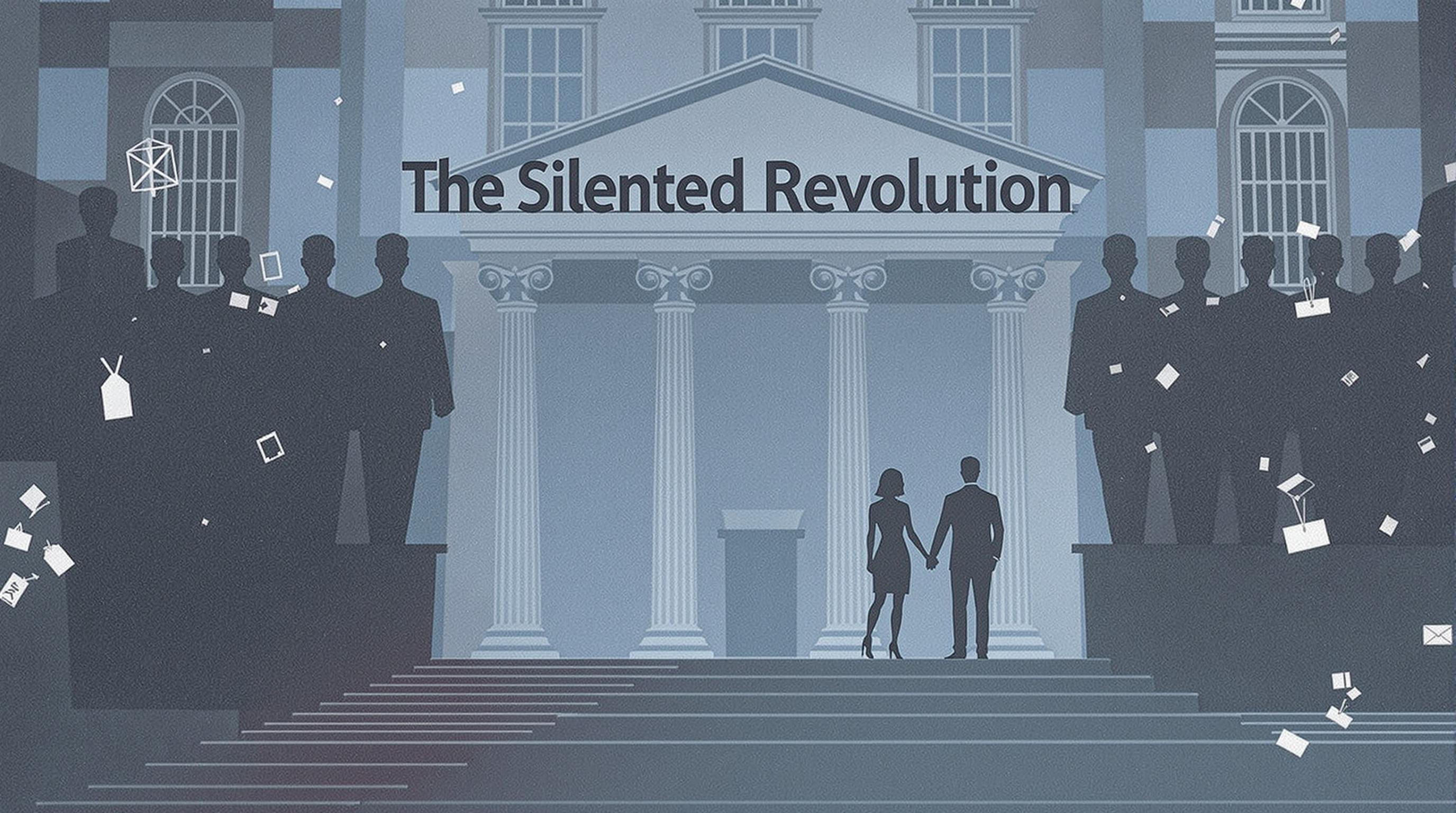Related Articles
- From Philanthropy to Profits: How Social Impact Investing is Reshaping the Future of Capital Markets
- Lost in Translation: How Language Barriers Shape Global Banking Relationships and Client Interactions
- Regulatory Labyrinths: Examining the Unanticipated Effects of Financial Laws on Sustainable Fashion Markets
- The Hidden Connection Between Gamification and Banking: How Playful Finance Engages a New Generation of Savers
- Borrowing Blues: How Your Zip Code Can Affect Loan Access and Financial Flexibility in Suburban vs Urban Areas
- Exploring the Quiet Revolution: How Biometric Privacy is Transforming User Trust in Digital Banking
The Rise of Ethical Banking: Can Conscience-driven Finance Lead to Sustainable Economic Growth?
The Rise of Ethical Banking: Can Conscience-driven Finance Lead to Sustainable Economic Growth?
The concept of ethical banking is rapidly gaining traction as society increasingly values transparency, sustainability, and social responsibility. This shift in focus presents a compelling argument: could conscience-driven finance pave the way for sustainable economic growth?
The Birth of Ethical Banking
Ethical banking is not merely a trend; it represents a fundamental shift in how financial institutions interact with individuals and communities. Born in the UK in the 1970s, the first ethical banks emerged as alternatives to conventional banking institutions that often prioritized profit over people and the planet. The innovators behind this movement sought to create a banking system that aligns financial services with social values—a far cry from the Wall Street excesses that led to the 2008 financial crisis.
Why People are Switching
Recent studies indicate that over 50% of millennials (ages 24–39) prefer to work for companies that have a clear commitment to social responsibility. This trend extends to banking; a 2020 survey by KPMG revealed that 66% of global respondents considered ethical banking information when deciding where to place their money. Awareness of climate change, inequality, and corporate malpractice has tinted the lenses through which consumers view financial institutions. Simply put, people are demanding more from their banks than just good interest rates.
Financial Institutions with a Conscience
Some banks have embraced this shift wholeheartedly, instilling ethical practices in their core operations. Take the Triodos Bank, for example. Founded in the Netherlands in 1980, Triodos specializes in financing organizations and ventures that have a positive social, cultural, or environmental impact. As of 2021, it had more than 700,000 customers across Europe and reported €18.4 billion in total assets—indicating that a conscience-driven model does indeed resonate with many.
Case Study: The Co-operative Bank
Another vital player in the ethical banking landscape is The Co-operative Bank in the UK, which has long cemented its position with a clear ethical policy. In 2021, the bank reported that 80% of its customers preferred it over traditional banks due to its ethical commitments. During its peak, The Co-operative Bank used to say, "We don’t just do business; we do good business." An alluring proposition that helped navigate the post-financial crisis landscape.
Sustainability: A Financial Imperative
Why should banks care about sustainability? Well, it turns out that embracing ethical banking can lead to more stable economic growth. A report from the UN Environment Programme highlights that sustainable investments could generate more than $2.1 trillion in economic opportunities annually by 2030. Ethical banking ensures that funds flow into projects that foster long-term social and environmental benefits, minimizing the risks associated with unsustainable practices.
The Power of Community Investment
A defining feature of ethical banking is its commitment to local community investments. Banks like the UK's Community Development Finance Institutions (CDFIs) focus on financing small businesses that create jobs within local communities often overlooked by traditional banks. A study from the UK Community Investment Report revealed that every £1 invested in community finance could yield up to £3.63 in economic benefits, showcasing the formidable impact of conscience-driven finance.
Bridging the Trust Gap
Trust is at the crux of any banking relationship. Ethical banks aim to create transparency in their operations by disclosing the sectors they fund and avoiding investments that are harmful to society—such as arms trading or fossil fuels. The trusted relationship that emerges fosters a stronger connection between the institution and its customers. According to the Edelman Trust Barometer, financial services saw a 12-point drop in trust during the financial crisis; ethical banks are now a solution to regain this lost faith.
Financial Literacy: A Pathway to Ethical Banking
Educating consumers about the importance of ethical banking can lead to a broader acceptance of these institutions. Financial literacy initiatives serve to dispel myths surrounding banking services and empower individuals; only then can people make informed decisions about where their money goes. A 2019 report by the Organization for Economic Cooperation and Development (OECD) stated that only 59% of adults worldwide were financially literate. By increasing this number, we could potentially see a rise in the demand for ethical banks.
A New York Coffee Shop Story
Let’s inject a little humor here! Picture a young barista named Nia, who diligently serves artisanal lattes to New York’s bustling clientele. One day, during a lull, she overhears a customer bemoaning their choice of bank. "I can’t believe I’m funding oil drilling! I just want to do my part for the planet!" Nia, inspired, decides on her next paycheck to switch to an ethical bank. Lesson: even coffee shop encounters can lead to transformative financial decisions! Sometimes, it only takes one moment of awareness to spark change.
Challenges on the Road Ahead
Despite the momentum behind ethical banking, challenges remain. The mainstream banking culture is deeply entrenched, and some consumers remain skeptical about whether ethical banks can offer competitive rates and services. Ironically, as the 'green bank movement' becomes more popular, the rapid increase in demand may dilute the essence of ethics, creating a risk of ‘greenwashing’—where banks simply rebrand without real commitment. Genuine efforts continue to differentiate those who prioritize ethics over those merely looking to cash in on the trend.
Making the Switch
So, how can you jump on the ethical banking bandwagon? Start by researching local ethical banks or credit unions. Investigate their lending practices, values, and any community projects they support. Websites like Ethical Banking provide valuable resources to help you compare different institutions. Remember: it’s not just about where your money will grow; it's about how it will impact the world.
The Economic Case for Ethical Banking
The economic arguments for ethical banking aren't merely theoretical; they are grounded in data. A study conducted by the Global Sustainable Investment Alliance (GSIA) noted that sustainable investments grew by 15% in 2020, reaching over $35 trillion globally. This growth showcases a significant shift as investors increasingly favor companies and banks committed to positive social impacts. If sustainability continues to grow in popularity, the call for ethical practices within the banking sector will escalate, and businesses will be compelled to adapt.
The Role of Technology
In today’s digital age, technology also plays a pivotal role in advancing the ethical banking mission. Fintech companies are stepping in to provide innovative solutions that emphasize transparency and sustainability. For instance, app-based banks often offer streamlined user experiences paired with ethical practices, appealing to the tech-savvy consumer. A fintech company such as Aspiration has rapidly gained popularity by promising to plant a tree for every account opened, which significantly enhances the sense of community and responsibility.
An Ethical Future
Ultimately, the rise of ethical banking reveals a larger societal trend towards conscientious decision-making in finance. By investing our money where it counts and demanding accountability from our financial institutions, we facilitate a future characterized by fairer economics and sustainable growth. As we navigate the complexities of the modern financial landscape, the true power of ethical banking lies not just in its ability to offer moral alternatives, but in its potential to transform economies and foster a new era of accountability.
Whether you're a teenager eyeing your first savings account or a retiree planning for the future, the decisions we make about where to place our funds can have lasting implications. Considering the evidence presented, it is time we ask ourselves: can we afford NOT to switch to ethical banking?




